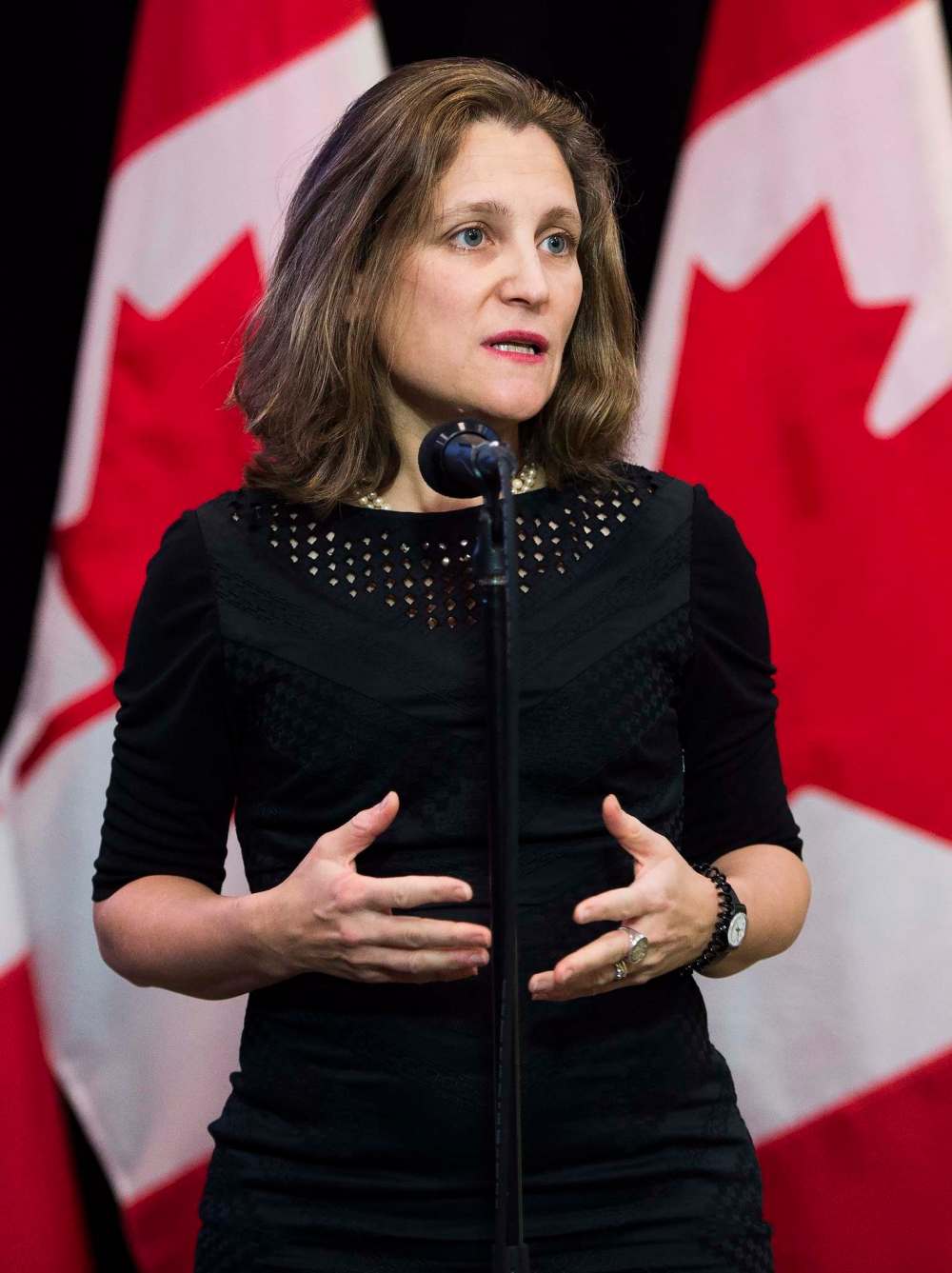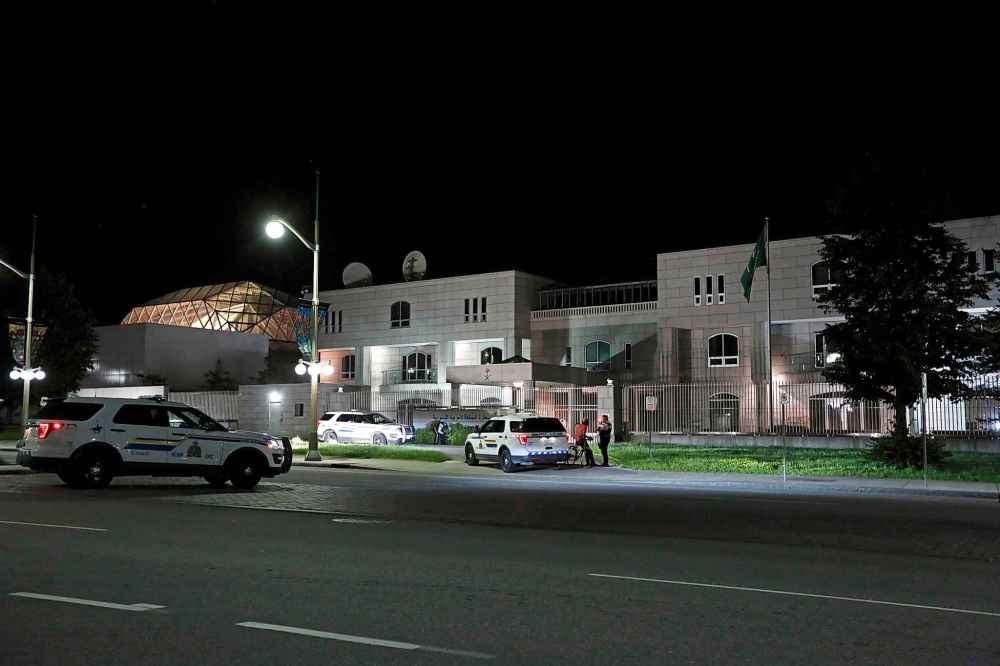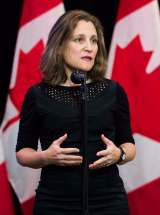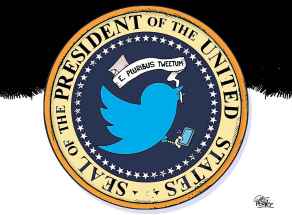Saudi-Canadian relations take an unnecessary turn
Read this article for free:
or
Already have an account? Log in here »
To continue reading, please subscribe:
Monthly Digital Subscription
$0 for the first 4 weeks*
- Enjoy unlimited reading on winnipegfreepress.com
- Read the E-Edition, our digital replica newspaper
- Access News Break, our award-winning app
- Play interactive puzzles
*No charge for 4 weeks then price increases to the regular rate of $19.00 plus GST every four weeks. Offer available to new and qualified returning subscribers only. Cancel any time.
Monthly Digital Subscription
$4.75/week*
- Enjoy unlimited reading on winnipegfreepress.com
- Read the E-Edition, our digital replica newspaper
- Access News Break, our award-winning app
- Play interactive puzzles
*Billed as $19 plus GST every four weeks. Cancel any time.
To continue reading, please subscribe:
Add Free Press access to your Brandon Sun subscription for only an additional
$1 for the first 4 weeks*
*Your next subscription payment will increase by $1.00 and you will be charged $16.99 plus GST for four weeks. After four weeks, your payment will increase to $23.99 plus GST every four weeks.
Read unlimited articles for free today:
or
Already have an account? Log in here »
Hey there, time traveller!
This article was published 07/08/2018 (2681 days ago), so information in it may no longer be current.
The foreign ministers of Canada and Saudi Arabia should be more adroit than that. Because of amateur mistakes by Canada’s Chrystia Freeland and Saudi Arabia’s Adel al-Jubeir, the two countries now have to dig themselves out from the damage done by a weekend of unnecessary mutual abuse.
Ms. Freeland’s Thursday tweet calling for the release of two prisoners in Saudi Arabia was followed on Friday by a tweet from her Global Affairs department urging the Saudi authorities to release Samar Badawi and all other peaceful human-rights activists. These messages, while no doubt reflective of many Canadians’ feelings on the issue, were empty gestures, not exercises of governmental power. They may have given Ms. Freeland the warm inner feeling of standing up for justice, but they neither brought nor promised any benefit to human-rights activists.

The Saudi reaction was immediate and ferocious. Samar and her brother Raif Badawi had been detained for crimes they had committed and they are enjoying the rights guaranteed by Saudi law, the Saudi government announced. Therefore, the kingdom was expelling Canada’s ambassador and recalling its ambassador from Ottawa. In quick succession, Saudia Airlines suspended its service to Toronto and Saudi exchange students were told not to attend Canadian universities.
These were not empty gestures. These were blunt exercises of state power to impair diplomatic, travel and cultural contact between the two countries. They showed the world that Saudi Arabia intends to keep persecuting human-rights campaigners as it has always done, even if it has to punish its overseas students, its travellers and its diplomatic corps to make that point.
Ms. Freeland should have known enough to find out in advance how the Saudis would react to her personal and departmental tweets. She should not have blithely assumed that, just because her gestures were purely symbolic, they would provoke no response.
Mr. al-Jubeir should have known enough to dispute Ms. Freeland’s opinions verbally without hurting innocent bystanders. The net effect of his action is to show the world that his government is extremely intolerant of critical comment and is willing to use state power to silence critics. His response to the Canadian tweets was absurdly excessive and turned an ephemeral digital whisper into an expanding international conflict.

In this age of tweeting presidents, public figures need to understand how to tweet and when to ignore unwelcome tweets. Ms. Freeland might have done better to line up a group of allies and then put out a message jointly with them in support of Saudi human-rights campaigners. Her solo gesture set this country up as a target for retaliation. She might also have done well to express her opinions privately to the Saudis first and find out how they would respond to a public expression.
The Saudi authorities, for their part, had better get used to governments in the democratic West urging them toward reform. The more prominent Saudi Arabia becomes as an Islamic champion in its region, the more attention will be paid to its treatment of women and minorities, its respect for international norms, the quality of its courts and its prisons and the conduct of its police forces.
Canadians are well used to receiving unwanted advice from foreigners and public officials about the way we run our country. It can be helpful to face such challenges when they force us to explain why we treat Indigenous people this way and why we pollute our environment so recklessly. The Saudis, likewise, should appreciate criticism, not silence it.











